Born to a Irish noble father, Brigid’s mother was a Christian slave in his service. Sold shortly after Brigid’s birth, Brigid was raised by her father. At an early age, Brigid’s temperament was marked by kindness and gentleness toward all creatures and living things. She was known throughout the country as a special child, with a kind word and smile for everyone. She heard Saint Patrick, who would later baptize her, preach, and never forgot it. Putting into practice the teachings of Christ, Brigid became infamous for giving away her father’s possessions to the poor and needy, including a precious jewel-encrusted sword given to him by a Scottish king. When Brigid explained that she had “given the sword to God” through the leper who received the sword, the king forbade Brigid’s father to punish her, stating, “Her merit before the Lord is greater than ours.”
Brigid’s father “freed” her, and she went to live with her mother, who was working as a milkmaid. Brigid continued to give away anything the farm produced—milk, vegetables, grains—to the poor and needy. And while she gave away mass quantities, the stores of the farm only increased, and the owners never went hungry. As the farm prospered, Brigid’s aged mother was freed from slavery.
As Brigid approached marrying age, and became more and more beautiful, her father arranged a number of marriages for her, but she refused each one, stating, “I have chosen the noblest Prince of all… and He is Christ our Lord.” She subsequently prayed to become ugly, so as to discourage suitors. Her prayers were answered, as her previous beauty disappeared, and she was able to remain a virgin for Christ.
Brigid and a group of seven virgins founded the first monastic community of Ireland at Cill Dara, modern-day Kildare. The most famous miracle associated with Brigid centers around the building of her religious community. As she was looking for land to build on, she found herself at odds with a local Irish chieftain. She gently asked him for a quantity of land, to which he disdainfully replied that she could have whatever amount of land her cloak could cover. Smiling kindly, Brigid took the cloak from her shoulders and cast it on the ground where it covered over 12 acres of the chieftain’s lands! Witnessing the miracle, he gave it willingly.
The monastery became a “double monastery,” housing both nuns and monks, and Saint Brigid and Bishop Conlaeth ruled the community as equals, a powerful (and unusual) position for a woman at the time. She was considered the equal of bishops, many of whom visited her from neighboring areas, seeking her counsel, and sitting at her feet. During her tenure, she built four additional monasteries, over thirty homes for religious orders, and a school of art famous for illuminated manuscripts of Biblical works.
Saint Brigid traveled the countryside, not seeking the conversion of souls like Saint Patrick, but rather visiting the sick, poor, and needy. She prayed incessantly for them, ministering to their needs, and anointing the dying. On one such occasion, visiting a delirious pagan chieftain, Brigid sat by the man’s bedside, on the ground which was covered with straw. Unable to convince him of the Gospel, given the lack of clarity of his thoughts, Brigid began weaving the straw into a cross. He grew calm, his mind clear, as she explained the message of Christ, His death for us, His resurrection, and our redemption. The chieftain accepted the word of God, was baptized, and died shortly thereafter. Saint Brigid’s cross became a symbol throughout Ireland for healing and safety in the home. Many homes in Ireland continue to bear the cross on their walls and mantles, with this prayer recited:
May Brigid bless the house wherein you dwell. Bless every fireside, every wall and door. Bless every heart that beats beneath its roof. Bless every hand that toils to bring it joy. Bless every foot that walks its portals through. May Brigid bless the house that shelters you. Amen.
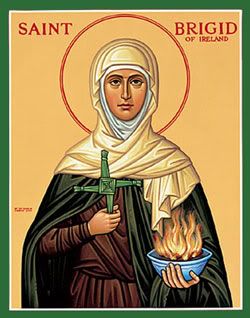 Further extravagant miracles are associated with Saint Brigid. It is said that she provided lavish feasts to visitors to the convent, along with Saint Blath, despite having little food in the larder. She was able to provide a constant supply of milk and ale to her guests. She is known for praying for a feast in heaven, where there is a "great lake of ale...and every drop is a prayer." She is known for taming wild animals, as gifts for kings, to save the souls of condemned men. Her shadow was reported to have miraculous healing powers, and she was frequently observed hanging her white cloak (also having healing powers) on a sunbeam to dry. While these may be the stuff of legend, Brigid’s faith and piety suggest a life dedicated to serving others and promoting the religious life. Along with Saint Patrick and Saint Columba, she is credited with creating a kingdom of God in the green hills and valleys of Ireland. And while we may have difficulty wrapping our minds around a 12 acre cloak, sunbeams that support clothing, and the taming of wild animals, we are certain that all things are possible with God.
Further extravagant miracles are associated with Saint Brigid. It is said that she provided lavish feasts to visitors to the convent, along with Saint Blath, despite having little food in the larder. She was able to provide a constant supply of milk and ale to her guests. She is known for praying for a feast in heaven, where there is a "great lake of ale...and every drop is a prayer." She is known for taming wild animals, as gifts for kings, to save the souls of condemned men. Her shadow was reported to have miraculous healing powers, and she was frequently observed hanging her white cloak (also having healing powers) on a sunbeam to dry. While these may be the stuff of legend, Brigid’s faith and piety suggest a life dedicated to serving others and promoting the religious life. Along with Saint Patrick and Saint Columba, she is credited with creating a kingdom of God in the green hills and valleys of Ireland. And while we may have difficulty wrapping our minds around a 12 acre cloak, sunbeams that support clothing, and the taming of wild animals, we are certain that all things are possible with God.Saint Brigid never strayed from her mission to serve others. She was not afraid to confront her father, giving away his food and possessions, carefully instructing him that by serving the poor she was really serving Christ. She bravely debated with pagan kings and chieftains, prevailing, building communities that before her time could never have been completed by a woman. She demonstrated no fear of the sick, including lepers, frequently giving them her cloak, washing their sores with her own hands, even when her sisters shied away. Her tireless service and courage remind us that loving God with all our hearts and minds and souls also means outwardly demonstrating that love. Even as a child, she was known by strangers as kind, charitable, and compassionate toward all. We pause today to wonder, Would a stranger on the street recognize us as Christian?
Saint Brigid’s Prayer for a Feast in Heaven
I wish I had a great lake of ale for the King of kings,
and the family of heaven to drink it through time eternal.
I wish I had the meats of belief and genuine piety,
the flails of penance, and the men of heaven in my house.
I would like keeves of peace to be at their disposal,
vessels of charity for distribution, caves of mercy for their company,
and cheerfulness to be in their drinking.
I would want Jesus also to be in their midst,
together with the three Marys of illustrious renown,
and the people of heaven from all parts.
I would like to be a tenant to the Lord, so if I should suffer distress,
He would confer on me a blessing.
Amen.
Day 32 of 365
Prayer Intentions: To be reflections of Christ’s love to the world
Requested Intentions: The rest and repose of a dearly departed friend (J); Reconciliation of struggling marriages (A); Reconciliation and healing in personal relationships (N); Safety for friend deployed to Afghanistan (S); Safety of friend/ relief worker in Haiti (L); Health and safety of new daughter (J); Renewal of loving Christ-centered relationship (A).
Special Intentions: Novena to Our Lady of Prompt Succor, for those who are struggling in the face of personal trials and tribulations, unemployment and financial stress, natural disasters (including the poor of Haiti), poverty, war, and exploitation. May Our Lady of Prompt Succor hasten to help us!
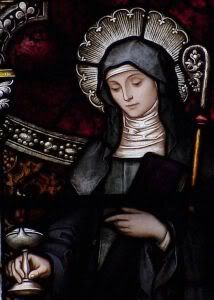
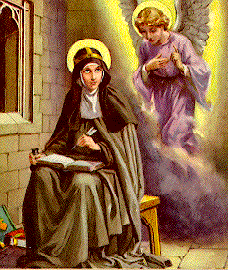
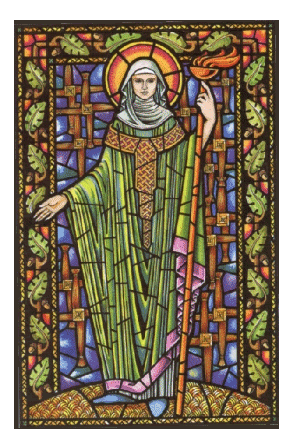

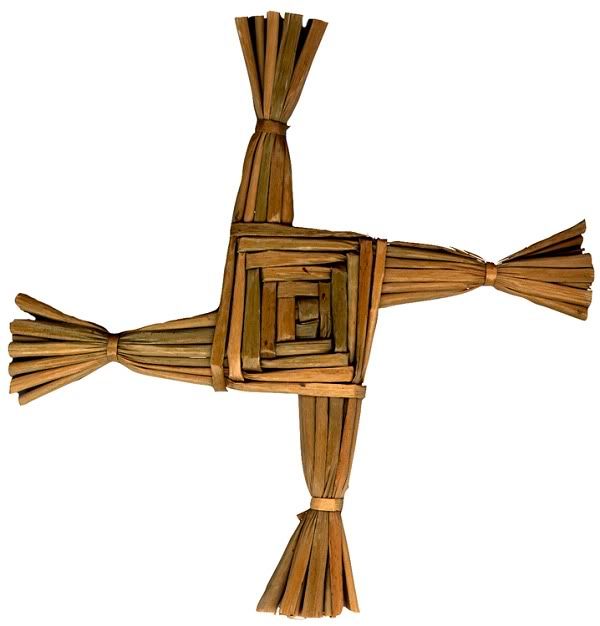
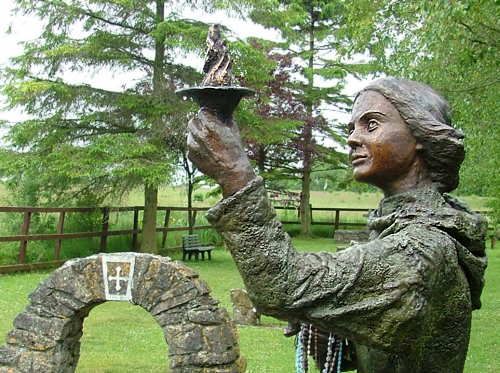
No comments:
Post a Comment
Thanks for leaving a comment. If you wish to submit a prayer request, however, please do so above, using the "Contact" tab.